
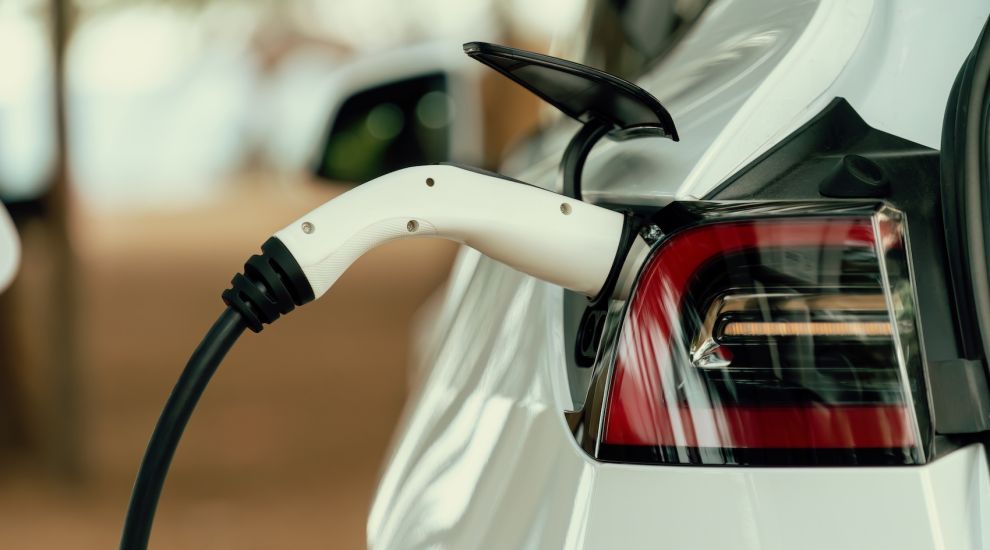

Two-in-five vehicles registered in Jersey in the first three quarters of this year were electric or hybrid-electric, according to new figures – but the island's motor industry representative has warned that it is "too early" for the Government to stop incentivising islanders to make the switch.
A total of 3,436 vehicles were registered in the island from January to September 2024, according to data published by Driver and Vehicle Standards.
Of these, 712 (20.7%) were fully electric and 1,403 (40.8%) were electric or partially electric – including hybrid electric, electric diesel, and electric petrol.
Note: 2024 is a partial year, with data only available up to the end of September.
There has been a huge rise in the number of electric vehicles registered in the island in the last five full years – from just 8% in 2019, to 33% last year.
Chair of the Jersey Motor Trades Federation, Miles Jude, attributed the rise to the fact that Jersey is the “perfect place for electric vehicles”.
He explained: “You don't have range anxiety on an island nine miles by five.
“You're generally not so reliant on charging infrastructure like you are if you're doing a journey of any distance in the UK or in Europe.
“And thirdly, obviously, we're very fortunate at the moment that we have probably some of the cheapest electricity prices in Europe.”
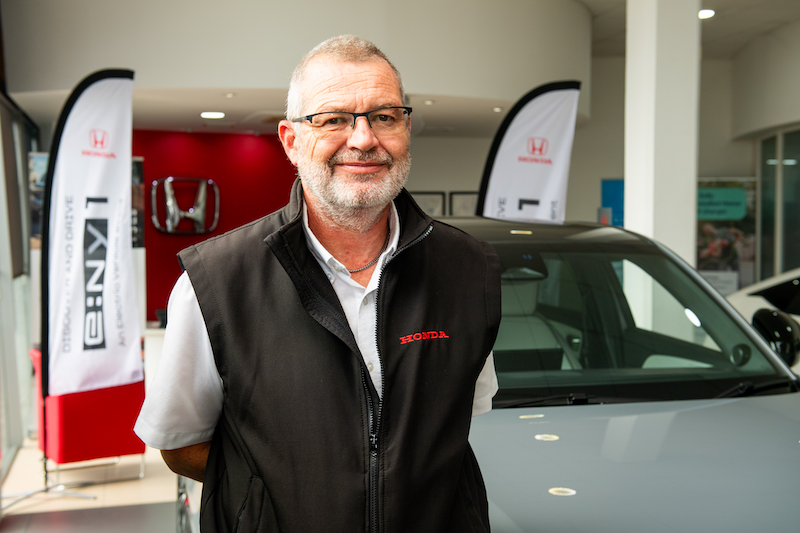
Pictured: Miles Jude is the Chair of the Jersey Motor Trades Federation.
Mr Jude also pointed to the Government’s Electric Vehicle Purchase Incentive scheme which launched in August 2023.
He described it as a “fantastic offer for consumers”.
The scheme allows islanders to apply for an incentive of 35% of the purchase value, up to a maximum of £3,500 towards the cost of an electric car or van.
So far, over 900 applications to the scheme have been approved.
However, the scheme is set to close at the end of 2024 – and Mr Jude raised concerns that this will have a detrimental impact on the sale of electric vehicles.
He explained that most consumers will have seen that the incentive is ending, so will have made an effort to utilise the scheme before it closes.
“There's been a flurry of sales in the last two months – and then that will have probably pulled certain sales forward,” said Mr Jude.
“Then I would imagine there will probably be a little bit of a lull for a couple of months.”
The Motor Trades Federation chair believe that it is too early to stop the scheme – with five years to go until the ban on new petrol and diesel vehicles in 2030.
“I think they [the Government] still need to put incentives in place,” he said.
“If they're serious about achieving their carbon neutrality goals, I think it's too early just to say, ‘Right, we did that, and all that's that, and you're on your own’.”
Mr Jude added that the end of the Government’s free parking scheme for electric vehicles could prove to be another “disincentive” for consumers.
Currently, newly-registered electric or partially electric vehicles get free parking in all States of Jersey car parks for 12 months from the vehicle's initial registration. After the first 12 months, parking is half price.
But both of these schemes are set to come to an end on 31 December 2024.
“I think it's better that the Government supports the consumer directly than the businesses themselves,” added Mr Jude.
Jersey mirrored the UK in announcing a ban on the registration of new petrol and diesel vehicles from 2030. The EU adopted a later target of 2035.
The UK has subsequently moved to a 2035 target, and Mr Jude said he would be “very disappointed” if the Government of Jersey does not follow this move.
He explained: “Over the last five years, I've had many meetings with politicians, and have always been assured that Jersey will follow the UK – although more recently, there seems to be a bit of backpedaling on that.”
Mr Jude explained that, as franchise dealers, many motoring businesses in Jersey are “completely reliant” on UK manufacturers and their supply of vehicles.
These manufacturers are anticipating the phase out of petrol and diesel vehicles by 2035, he added.
Mr Jude therefore raised concerns that, if Jersey continues to aim to phase out petrol and diesel vehicles fives years earlier than the UK, it will restrict both local businesses and consumers.
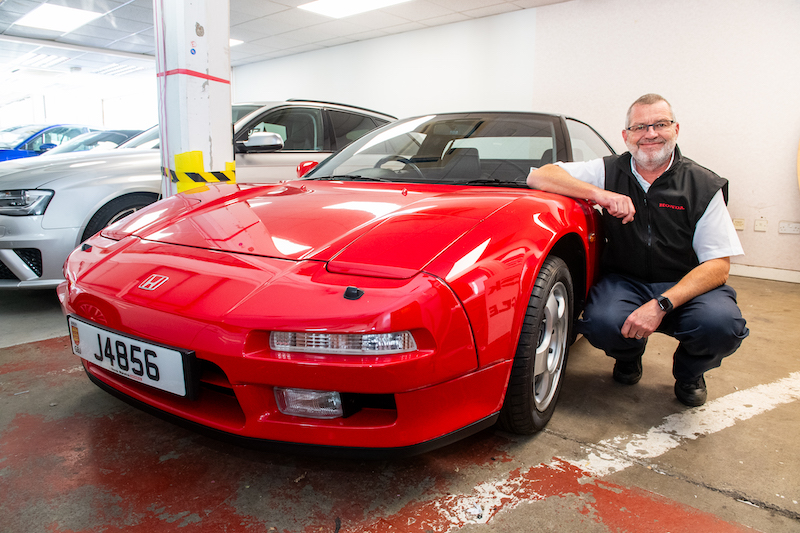
Pictured: Miles Jude explained that local car dealers may encounter problems if Jersey brings in a ban on petrol and diesel vehicles before the UK.
He explained: “All they're doing is restricting our business completely, because obviously we're not going to be able to supply cars that our manufacturers aren't ordinarily supplying, therefore also restricting the consumer choice.
“The consumer is then railroaded down another route that they don't necessarily want to go down as well.
“So I'd be very, very disappointed if our government did not follow whatever the UK does.”
One islander who has recently switched from a petrol to electric car is 25-year-old chiropractor Hannah Patel.
She said that the main reasons behind her decision to purchase an electric car was due to the positive environmental impact, and “knowing it’s a reliable and safe car to drive”.
Pictured: Hannah Patel is a Jersey resident who has recently made the switch from a petrol to electric car.
She explained: “Some positives that I’ve noticed from making the switch to electric include not filling my car up with petrol which was very expensive, and not having to actively think about when or where to fill up depending on the different prices of petrol around the island.
“It is also easy to charge from either an official charging point or a normal mains socket. Nowadays there are also many charging points around town.”
Miss Patel said that one downside to having an electric car is that you have to think about how much charge you have in relation to the distance you are driving.
But she explained: “On average, I only have to charge my car once a week and you rarely ever travel far enough in Jersey to have to seriously consider your car’s mileage, making it a very accessible and easy change for Jersey residents.”
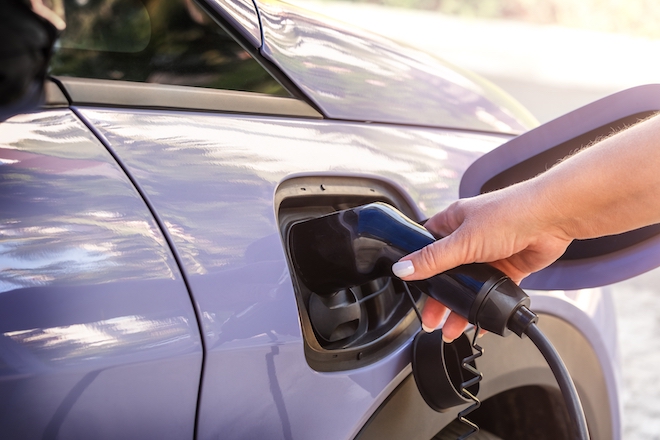
Pictured: Miss Patel said it is “easy to charge from either an official charging point or a normal mains socket”.
Miss Patel added that she would encourage other islanders to make the switch from petrol to electric.
She said: “I think the main thing that puts people off getting an electric car is either the charging points – which are a lot more simple to use than I originally thought – and the worry of having enough miles for your car journeys.
“However there are many charging points around the island and you can even search for ones near you on Google Maps.”
Environment Minister Steve Luce said he is “very encouraged” by the recent data.
He said: “I am very encouraged by recent data which shows the number of electric vehicle registrations in Jersey is increasing, with 2023 marking the highest number of electric vehicles registered to date, and I am confident that we will see even better data for 2024.”
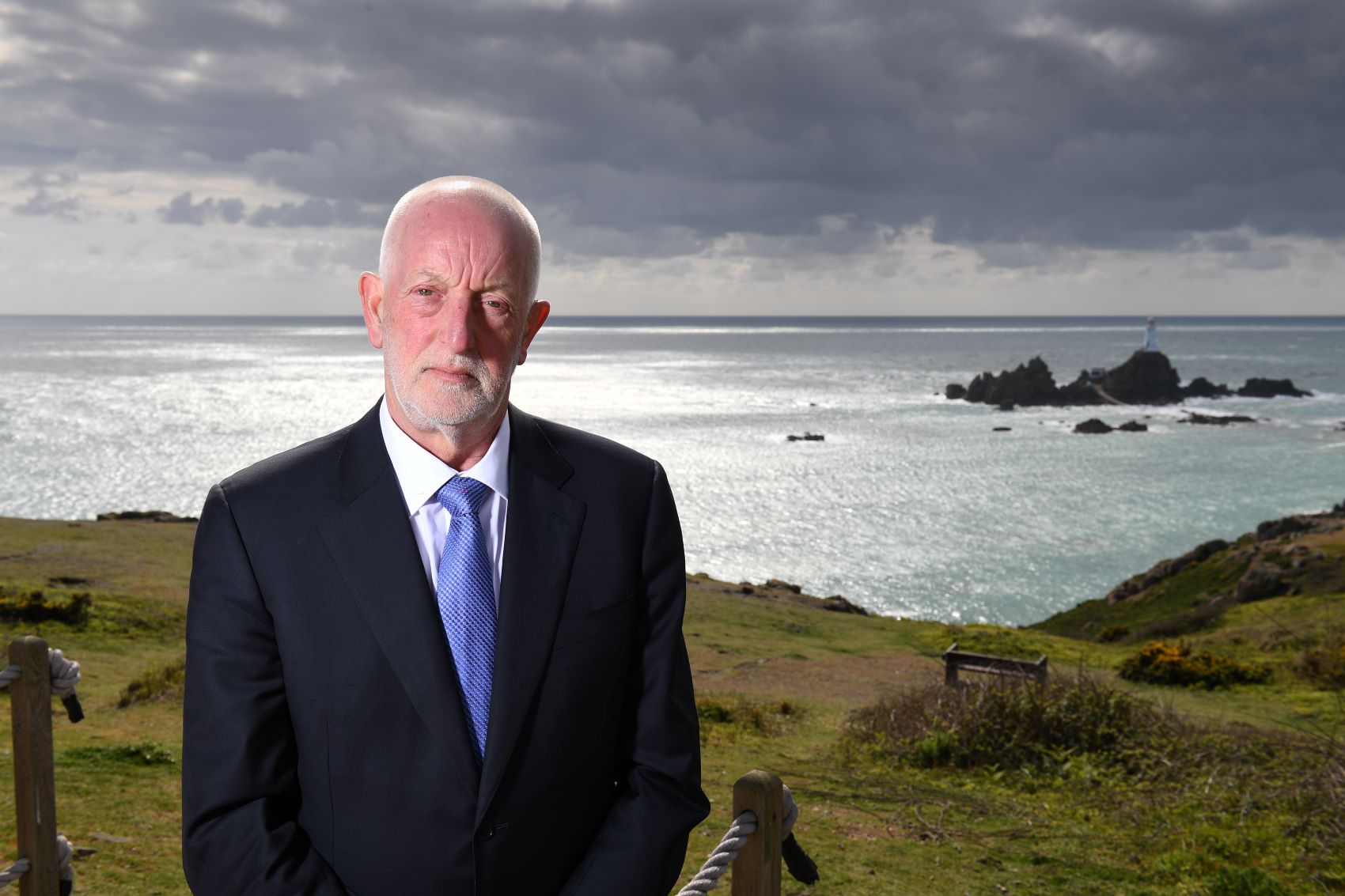
Pictured: Environment Minister Steve Luce said he is “very encouraged” by the increase in electric vehicle registrations.
Deputy Luce added that “preparatory work” is set to begin next year on the legislation to ban the importation, sale and registration of petrol and diesel cars and small vans new to the island from 2030.
“This will align Jersey with similar legislation planned in the UK and EU, helping us reach our emission reduction targets,” he said.
Transport sector emissions have been the most significant contributor to the island's total emissions since 2000, according to data from the Jersey Greenhouse Gas Inventory.
In 2022, transport sector emissions accounted for 45% of total greenhouse gas emissions in the island.
But the Environment Minister explained that incentive schemes, such as the Electric Vehicle Purchase Incentive, have been “hugely successful over the past year, reflecting islanders and businesses’ commitment to reducing transport related emissions”.
He added: “We anticipate this scheme will close before year-end due to the quick uptake which completely exceeded our original forecasts.”
Deputy Luce explained that, once the scheme has closed, an evaluation will be conducted to fully measure its level of success.
He added that there are “currently no plans” to run another vehicle incentive during this first phase of the Carbon Neutral Roadmap, which ends in 2026.
The Minister said: “I would like to encourage islanders who are thinking of switching to electric, and would like financial support from the EVPI, to apply now as the final incentives are being issued on a first come first served basis.”
You can find out more about the Electric Vehicle Purchase Incentive scheme HERE.
Comments
Comments on this story express the views of the commentator only, not Bailiwick Publishing. We are unable to guarantee the accuracy of any of those comments.